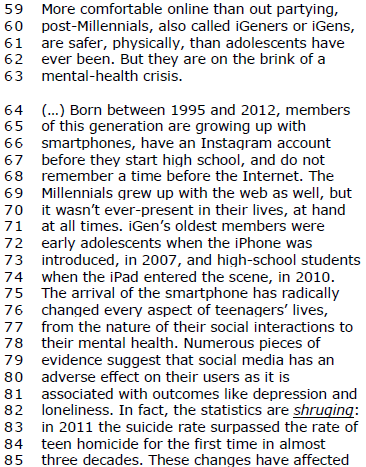Questões de Concurso
Filtrar
38 Questões de concurso encontradas
Página 7 de 8
Questões por página:
Texto III
Read an excerpt from the article, How Studying or Working Abroad Makes You Smarter.
A study (LEAD) by William Maddux, an associate professor of organizational behavior at INSEAD, (FIND) that among students enrolled in an international MBA program, their “multicultural engagement”—the extent to which they adapted to and learned about new cultures—predicted how “integratively complex” their thinking (BECOME).
That is, students who adopted an open and adaptive attitude toward foreign cultures (BE) more able to make connections among disparate ideas. The students’ multicultural engagement also predicted the number of job offers they (RECEIVE) after the program ended.
Available at:<http://time.com/79937/how-studying-or-working-abroad-makes-you-smarter/> . Accessed on 4/3/16.
The verbs in parentheses originally appeared in the simple past in the article. The correct of the simple past of these verbs is:



